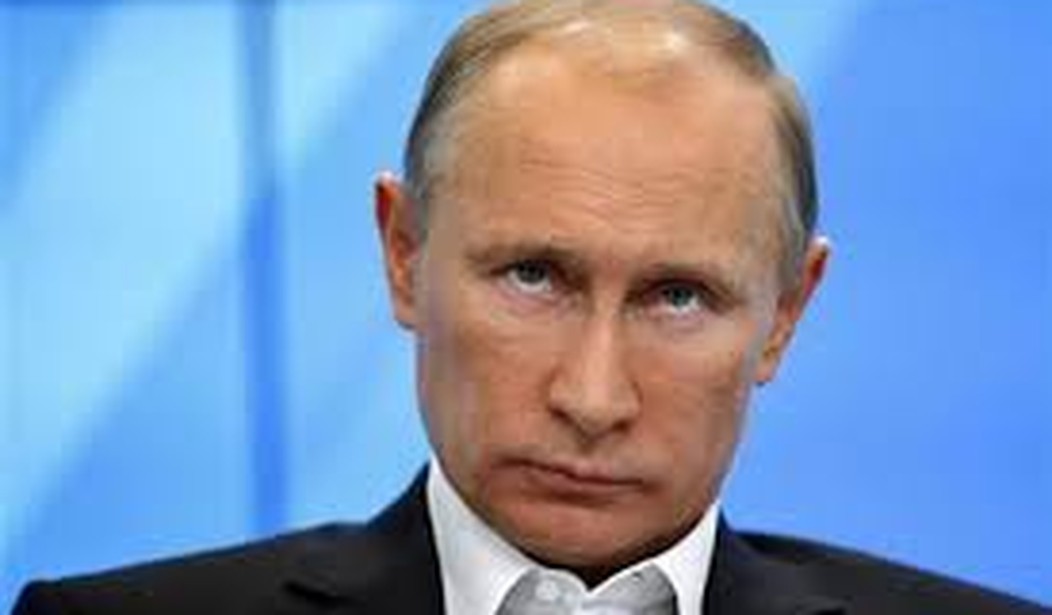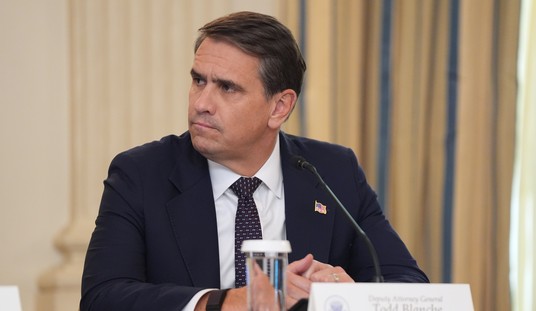WASHINGTON – Mikhail Kasyanov, former Russian primer minister and minister of finance, said the West should ramp up pressure on Russian President Vladimir Putin by expanding restrictions on travel and financial transactions against aides and business leaders with ties to Putin.
Speaking at the Atlantic Council on Wednesday, Kasyanov said the United States and the European Union should also sanction all members of the Russian parliament who voted last month to support Putin’s annexation of Crimea and authorized Russian military operations in Ukraine.
“A few years ago we had some kind of deterioration of the international arena, too,” Kasyanov said. “Several times Mr. Putin stated that the newly established states – territories of the former Soviet Union – [did not] have full sovereignty and promised he would step in if something had to be changed there. In fact, it happened soon after the 2008 NATO Summit in Bucharest. A few months after Russian troops invaded the territory of Georgia – it was a real disaster, a lot of casualties.”
After Ukraine and Georgia sought to take preliminary steps in 2008 to join NATO, Putin sent troops into Georgia and seized the regions of South Ossetia and Abkhazia. Following Russia’s attack on Georgia, a weak U.S. and European response emboldened Putin, Kasyanov said.
Kasyanov, who currently serves as co-chair of an opposition group, the Republican Party of Russia – People’s Freedom Party, said “business turned out to be as usual” between the West and Russia only a few months after the conflict.
In the following years, Western companies and governments continued to pursue business deals with Putin’s government. Kasyanov cited France’s agreement to build high-tech, Mistral-class warships for Russia’s navy.
“German companies…pressed their government to continue…getting profitable contracts,” he said.
Having in mind that the West is not consistent in implementing sanctions, Putin came to feel that “he got a special ticket issued by the West” that left him free to act as he wished in the former Soviet nations. “Mr. Putin understood that…the West is weak and that its leaders are cynical and only think about the elections, and he could do whatever he wanted,” Kasyanov said.
Realizing the lack of legitimacy inside the country, Putin has felt the need to draw this legitimacy from the outside, Kasyanov said.
“Initially, that was just…kissing and hugging sessions with Europeans and other world leaders, but these days it is a little different,” he said. Putin has convinced the Russian people of the threat of external enemies through “intense propaganda,” Kasyanov said.
He said Putin and his team were surprised by the West’s stronger reaction to his takeover of the Crimea.
Kasyanov urged the U.S. government to increase the list of sanctions on Russia, which have been “very effective.” He said the West should press Putin to call on the Russian-backed armed groups who have seized towns and local government buildings in eastern Ukraine “to immediately hand over [their] weapons” in accord with the international agreement reached in Geneva earlier this month.
“Effective measures means individual, targeted sanctions,” Kasyanov said. “Me and my party, we are for such sanctions – that’s sanctions not against the people of Russia, that’s sanctions not against the Russian Federation. …That’s sanctions against those people who wanted to destroy European security.”
Kasyanov said the Western community should ensure that the May 25 elections in Ukraine are free and fair.
Former Ukranian President Viktor Yanukovich fled Kiev in February following months of mass street protests against the corruption of his government, and after he rejected an association agreement with the EU in favor of closer ties with Russia.
Kasyanov called for broader financial support to help Ukraine reschedule payments on its debt and to allow the government to “stand up…to be strengthened, and work out this set of reforms supported by the whole world.”
“I think we have a very good opportunity, first to resolve the problem with Ukraine and Crimea. And secondly, just to tackle the problems in Russia,” he said.
Kasyanov said change in Russia is inevitable and the regime will soon collapse if the economic situation in the country continues to worsen.
“Russia should pursue foreign policy based on Russian domestic policies [and] on universal values. The same of what you share here in this country and other countries, too,” he said.
Despite the appearance that things in Russia have not changed, Kasyanov said the sanctions are already having an effect and changing the “atmosphere” of decision-making in Putin’s inner circle.
With rising inflation, stagnant growth, billions in capital flight, and a plunging ruble and stock market, Russia is teetering on the brink of recession. After growing only 1.3 percent in 2013, gross domestic product contracted in the first quarter of 2014 compared with the previous three months, and the economy is likely to move into recession in the second quarter, the Russian economy minister said earlier in April.
“For more than six months we haven’t had GDP growth…International reserves are not enough to keep the whole country to continue the same lifestyle it has now,” Kasyanov said.
He said failure to increase sanctions and raise pressure on Putin could lead him to attempt further interventions, particularly in Transnistria – a region of Moldova, adjacent to Ukraine, where Russia for years has backed a secessionist movement. Many experts have suggested that Russia could seize parts of southern Ukraine, including Odessa, Ukraine’s third largest city, to extend a zone of contiguous Russian control hundreds of miles beyond Russia’s borders.









Join the conversation as a VIP Member